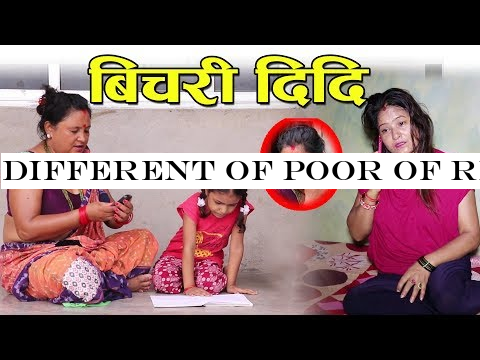Music
Trailers
DailyVideos
India
Pakistan
Afghanistan
Bangladesh
Srilanka
Nepal
Thailand
Iraq
Iran
Russia
Brazil
StockMarket
Business
CryptoCurrency
Technology
Startup
Trending Videos
Coupons
Football
Search
Download App in Playstore
Download App
Best Collections
Nepal
MP Bimala Rai Paudel has sought licence system for journalists to maintain professional standards
Kathmandu, September 2
Lawmakers of both ruling and opposition parties have asked the government to remove fine on mediapersons to be imposed by the Media Council in the Media Council Bill proposed by the government for violating code of conduct.
Eight amendment proposals have been registered at the National Assembly by lawmakers representing ruling parties — Nepal Communist Party (NCP) and Samajwadi Party-Nepal, and opposition parties Nepali Congress and Rastriya Janata Party-Nepal.
The amendment proposals have sought that the provision of fine between Rs 25,000 to one million provision on media outlets, publishers, editors, journalists and reporters be scrapped from the bill proposed by the government.
The bill stipulated a provision that if any media published news contents in contravention of the code of conduct, and if an investigation launched after the affected partycomplaint found that such news content had damaged reputation of the complainant, then the media council could impose fine between Rs 25,000 and one million rupees on media outlets, publishers, editors, journalists and reporters.
The bill states that the council can order erring parties to pay compensation if the content in media has damaged the reputation of the affected party.
The amendment proposal registered by NCP lawmakers led by ThagendraPrakashPuri stated that the fine provision should be removed. Instead of fine, thelawmakers have proposed that the problems be solved with the help of a mediator.
The proposal registered also stated that the media council should be an independent and self-regulatory institution.
Whereas, three NC lawmakers led by SaritaPrasai, chief whip of the parliamentary party at the National Assembly, registered an amendment proposal stating that the guilty party would have to make a public apology or else be blacklisted for the offence committed. &No publisher shall be punished for such offence,& the proposal read.
NCP lawmaker BimalaRaiPaudel, in her separate amendment proposal, has stated that if necessary,a case could be forwarded to the High Court. She also sought licence system for journalists to maintain their quality.
Earlier, the bill had drawn heavy flak from opposition parties, the media fraternity and stakeholders. So, taking into account the concerns of the media fraternity and stakeholders, the lawmakers registered amendments.
The NC proposal stated that the media council should be chaired by a person with qualification equivalent to that of a Supreme Court justice instead of a person with qualification ofbachelordegree and the person should have work experience of a minimum of 10 years. &There should be at least two members, including a lawmaker of the main opposition party and a woman, as members of the council,& it read.
The NC has demanded that the president of the Federation of Nepali Journalists be nominated as member of the council.
NCP lawmakers have also proposed a provision in the bill that those who have been working for 15 years in the field ofjournalism be rewarded with the position of senior journalist on the recommendation of the media council.
The proposal added that the head office of the media council would be in Kathmandu and other sub-offices of the council could be opened in the headquarters of provincesin the future.
The post Lawmakers urge government to remove proposed fine on mediapersons appeared first on The Himalayan Times.
- Details
- Category: Nepal
Read more: Lawmakers urge government to remove proposed fine on mediapersons
Write comment (94 Comments) प्रियंका धरीधरी रुंदापनि प्रकाश कटुवालको आक्रोश रोकिएन | मर्न तयार छु भन्दै गोप्य म्यासेज देखाए VideoLink: https://trailer.ecroaker.com/component/search/?videoid=2tVBlKVwQSg
प्रियंका धरीधरी रुंदापनि प्रकाश कटुवालको आक्रोश रोकिएन | मर्न तयार छु भन्दै गोप्य म्यासेज देखाए VideoLink: https://trailer.ecroaker.com/component/search/?videoid=2tVBlKVwQSg- Details
- Category: Nepal
 Crushing Crunchy --Soft Things by Car! - EXPERIMENT: LIGHTERS VS CAR VideoLink: https://trailer.ecroaker.com/component/search/?videoid=St0jOs0JWkg
Crushing Crunchy --Soft Things by Car! - EXPERIMENT: LIGHTERS VS CAR VideoLink: https://trailer.ecroaker.com/component/search/?videoid=St0jOs0JWkg- Details
- Category: Nepal
Read more: Crushing Crunchy -Soft Things by Car! - EXPERIMENT: LIGHTERS VS CAR
Write comment (90 Comments)Kathmandu, September 1
Sub-committee formed to investigate allegations against medical colleges for charging extra fee from students submitted its report today to a panel chaired by lawmaker Jay Puri Gharti.
The Parliamentary Education and Health Committee had formed the sub-committee to investigate all 21 medical colleges across the country.
Earlier, a team from the Nepal Medical Council had found that Gandaki Medical College Teaching Hospital and Research Centre, Pokhara, had charged extra fee from MBBS students.
The NMC formed a probe committee after receiving complaints the from students.
As per the fee structure fixed by the government, colleges in Kathmandu valley can charge not more than Rs 38.5 lakh per student, while colleges outside the valley can charge not more than Rs 42 lakh per student.
The probe committee, which submitted its report to the NMC on February 27, had stated that the college was found charging extra fee from students in the name of annual fee, library fee, transportation fee and field visit.
On March 22, the Ministry of Education, Science and Technology had directed those colleges to return extra fee charged from students. The committee will hold a meeting to review recommendations made by the sub-committee, said a source.
The post Report on medical colleges submitted appeared first on The Himalayan Times.
- Details
- Category: Nepal
Read more: Report on medical colleges submitted
Write comment (94 Comments) Different of Poor of Rich लाज नभएकी बहिनी VideoLink: https://trailer.ecroaker.com/component/search/?videoid=r37W92esOGM
Different of Poor of Rich लाज नभएकी बहिनी VideoLink: https://trailer.ecroaker.com/component/search/?videoid=r37W92esOGM- Details
- Category: Nepal
Read more: Different of Poor of Rich लाज नभएकी बहिनी
Write comment (100 Comments)Kathmandu, September 1
Children aged below two years who consumed junk food were found to be suffering from nutrition deficiency, according to a study.
A research conducted by Helen Keller International Nepal, along with the Ministry of Health and Population revealed that children consuming junk food and beverage, had low dietary adequacy.
A cross-sectional survey was conducted in a representative sample of 745 primary caregivers for children aged 12&23 months, in Kathmandu valley, from February to April 2017. The research was published on 31 May 2019, on The Journal of Nutrition.
For all children, junk food and beverage, were main source of energy. Junk food mostly consumed by children included biscuits with 10.8 per cent total energy intakes (TEI), candy/chocolates with 3.5 per cent TEI, savoury snacks with 3.4 per cent TEI, instant noodles with 2.2 percent TEI and bakery items with 2.0 per cent TEI.
Nutrient intakes, dietary adequacy, length-for-age, and iron status were compared based on the contribution of junk food and beverage, to total energy intake, in the research.
Over-consumption of energy-dense/nutrient-poor food and beverage by children could lead to micro-nutrient dilution during critical period of their growth and development. Caregivers for children should, therefore, provide children with healthy food rich in micro-nutrients, said AtulUpadhyay, principal investigator of the research project.
&Children should not be given junk food because it will have adverse impact on their growth and development. Instead, they should be given food cooked at home, eggs, fruits and other varieties rich in nutrition, said Upadhyay.
&We conducted the research in the capital city where people are educated. We assume that the caregivers and mothers of the children are well informed about dietary effects.
They should provide food items to children, that are rich in nutrition,& he said. There is a need to support caregivers in making healthy food choices. Poor nutritional value of junk food and beverage, should be included in school education, according to Upadhyay.
Children need micro-nutrients such as iron, Vitamin B12 and zinc for their growth and development.
Such micro-nutrients also help to prevent anaemia and improve immune system of the children, said Kedar Raj Parajuli, chief of Nutrition Programme, Family Welfare Division, in the Department of Health.
Infant and young children should be given balanced diet to ensure their appropriate growth and development. Infants and young children are vulnerable to undernutrition and to morbidity and mortality, according to Parajuli.
World Health Organisation has recommended balanced diet for children and infants which include grains, roots, and tubers; legumes and nuts; dairy products (milk yogurt, cheese); flesh foods (meat, fish, poultry, and liver/organ meat); eggs;vitamin A-rich fruits and vegetables; and fruits and vegetables.
The post Junk food blamed for nutrition deficiency in children appeared first on The Himalayan Times.
- Details
- Category: Nepal
Read more: Junk food blamed for nutrition deficiency in children
Write comment (97 Comments)Page 1386 of 1636

 8
8





